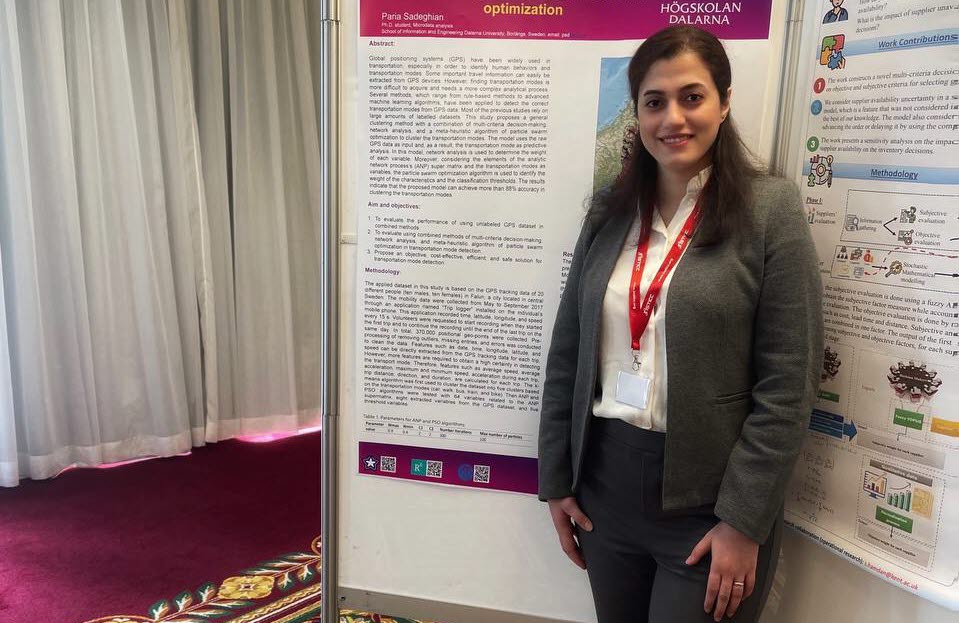This news item was published more than six months ago and may no longer be relevant.

Paria Sadeghian's thesis focuses on the utilisation of GPS data to comprehend and anticipate how individuals move and the modes of transportation they use. It explores innovative techniques for accurately identifying transportation modes within GPS tracking data, employing a combination of machine learning approaches. The overarching aim is to enhance the analysis and planning of transportation systems.
– My research involved employing various methods, including systematic reviews, deep learning models, and hybrid algorithms that combine K-means clustering and ANP-PSO optimisation. Over one year, GPS data was collected from devices for 91 volunteers. These approaches enabled me to address the challenge of working with both labelled and unlabelled GPS datasets to effectively detect and predict transportation modes, says Paria Sadeghian.
The findings from her studies are extensive. Deep learning models and hybrid algorithms significantly enhance the precision of transportation mode detection. Notably, models such as Random Forest and LSTM demonstrated high accuracy, showcasing the potential of these technologies in urban planning and smart transportation systems.
– Perhaps the most significant finding is the development of a novel semi-supervised learning model that requires minimal labelled data. This model not only enhances the accuracy of transportation mode detection but also offers a scalable solution that can be adapted for various urban contexts.
The implications of the thesis extend beyond academia. By enhancing our understanding of transportation modes and mobility patterns, this research can help urban planners and policymakers devise more efficient sustainable transportation strategies. Future applications could include real-time traffic management systems and enhanced public transport services that dynamically adapt to changing urban mobility demands.
– The approaches developed in my thesis highlight the potential of GPS data to not just understand but also predict human behaviour, which could revolutionise how we think about movement within urban spaces.
Paria plans to continue her work in the field of transportation research, potentially expanding into consulting roles or collaborative projects that leverage her expertise to address global transportation challenges.
Doctoral thesis: A Multi-Dimensional Approach to Human Mobility and Transportation Mode Detection Using GPS Data (diva-portal.org)